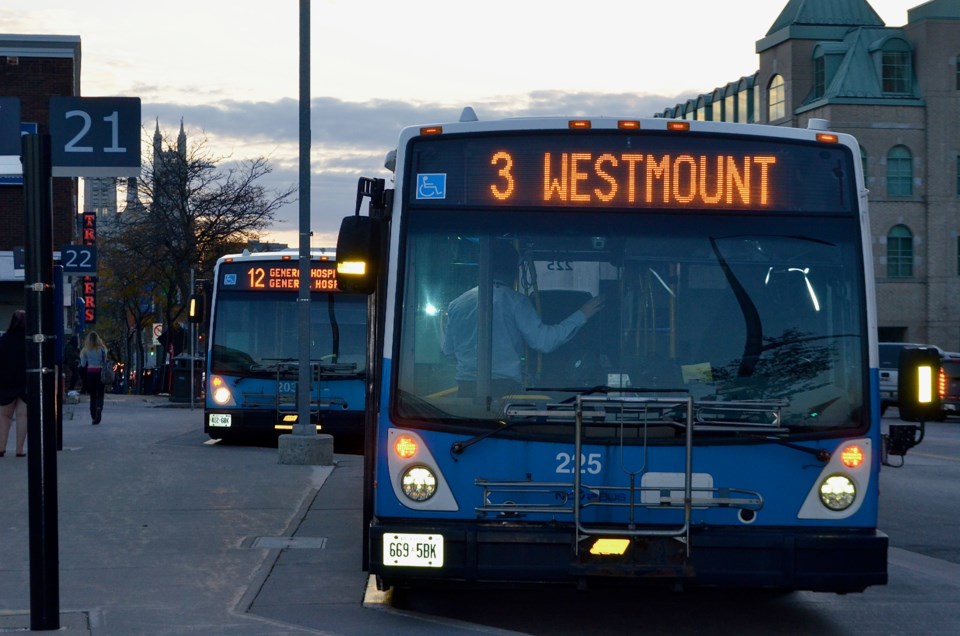On my Guelph Politico candidate questionnaire, I asked everyone running what they thought was the most essential council decision of this term. There were some interesting answers, and some of them were along the lines you might expect, but I’m now going to take a moment to answer my own question.
To me, the most essential decision wasn’t a decision. It was when a near-majority of council threatened to scuttle the entire Transportation Master Plan in its early form due to one mention that perhaps some point in the future – like sometime in the 2040s – staff might have to consider the possibility of transit only lanes on some of Guelph’s busiest streets.
The mere suggestion that transit-only lanes could be in the future of a select few Guelph roads was enough to blot out the sun, and flush years of staff work down the drain, and it once again belied this false reputation of Guelph has an environmental leader and a progressive city.
It’s also why I didn’t want to run for council. Fighting for transit in Guelph is like being the last living person standing at the end of a zombie movie.
This election, council’s history with transit isn’t the deal breaker, but it’s certainly a big consideration. There’s only a certain level of hypocrisy that one can deal with in an election campaign as you watch candidates talk about getting more people on transit with the understanding that they will never be one of those people. Transit, despite all the lofty words, is still something for other people.
A quick primer on transit as an election issue.
The Transportation Master Plan has set a goal that by 2051, 42 per cent of all daily trips around Guelph will be made without an automobile, which some councillors at the time of the TMP’s approval noted was wildly ambitious. Now that 42 per cent number includes walking and biking as non-automobile options, but I have to ask, in the last 30 years, has Guelph become more car dependent, or less?
When a group of transit workers across Guelph, Waterloo Region and Brantford got together last fall to create a small-scale regional transit system, it got no support or debate at Guelph council. Again, the town that thinks it’s an environmental leader utterly failed to show leadership. A government that asks for out-of-the-box thinking never once considered looking at what didn’t come out of the box.
Later, council looked at a 10-year plan for improving transit routes and schedules. The plan was approved, but only because council was practically embarrassed into voting in favour after a dozen delegates, including myself, made the point that not only is this plan inadequate for 10 years from now, it’s inadequate for today.
My own delegation made the point that certain crosstown trips on transit can take 60 or 70 minutes, which is about four or five times as long as it takes to drive there in your own private automobile. This seemed to be a surprise to many on council, who clearly live in a state of blissful ignorance of just how substandard our transit system is when it comes to serving an active commuter culture.
But that leads me to something we never talk about in any discussion of transit in Guelph, and that’s classism.
You know why council feels neither compelled nor encouraged to act on making transit an attractive option? It’s because it’s long been an unspoken totem of Guelph folklore that transit is for students, young people who can’t drive yet, old people who can’t drive anymore, new Canadians and the poor.
These council directives, like making transit free for kids under 12, are designed to “create a culture” of transit use, but culture goes out the window when it meets reality. Imagine a high schooler that lives on Sleeman Avenue or Stevenson Street North getting to their part-time job on Kortright or Clair Road, and then choosing the hour-long bus ride as opposed to saving their pennies and buying an old beater.
If the vast majority of Guelph, including the people on council that should be leading by example, are not choosing transit, then why the hell do we expect our young people to?
You can’t fix transit with cheap fairs or free rides because the system is fundamentally broken. Routes are too long, schedules are too infrequent, and flexibility is non-existent. Council and senior staff don’t know this because their livelihood is not tied to transit’s effectiveness.
And to further prove the disconnect, the city is crowing about the expansion of Sunday service on the #99 Mainline. It now starts at 7:15 a.m. and ends at 10:30 p.m., but that only matters if your trip begins and ends along the #99 route. If you live on Imperial Road or Victoria Road, you still have to walk 45 minutes, or invest $20 in a taxi or Uber ride to get to the closest transit stop.
This is the uphill climb that anyone running on a real pro-transit agenda is facing. You’re one person fighting a Godzilla-sized monster birthed in apathy and ignorance, and it would be one thing if transit is the only issue, but it’s most definitely not.
Attacking the transit issues in Guelph requires a team approach, and right now, and likely after Monday, there’s no team with the active and historical experience with transit’s shortcomings to give the issue the attention it needs. No one wants to be an outlier, so let’s hope that all those campaign promises about transit are worth more than the pretty card stock they’ve been printed on.
Otherwise, this column will be re-run, on schedule, before election day 2026.
